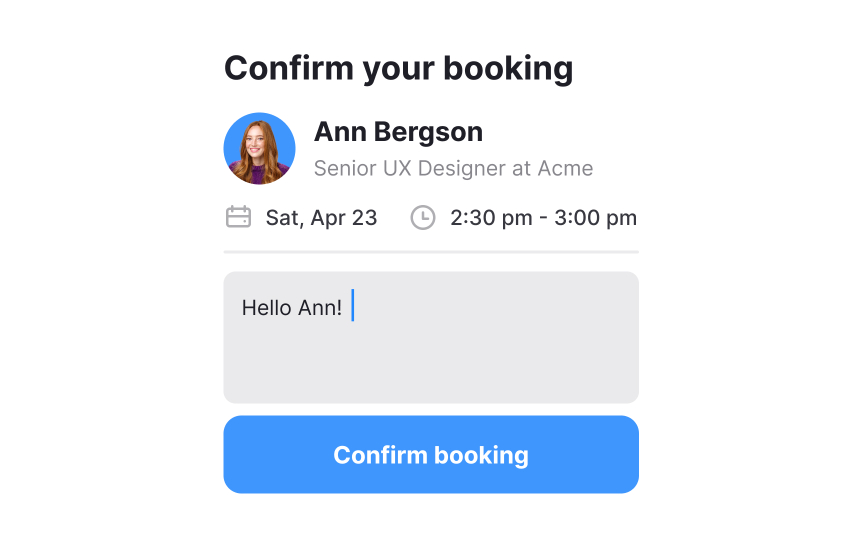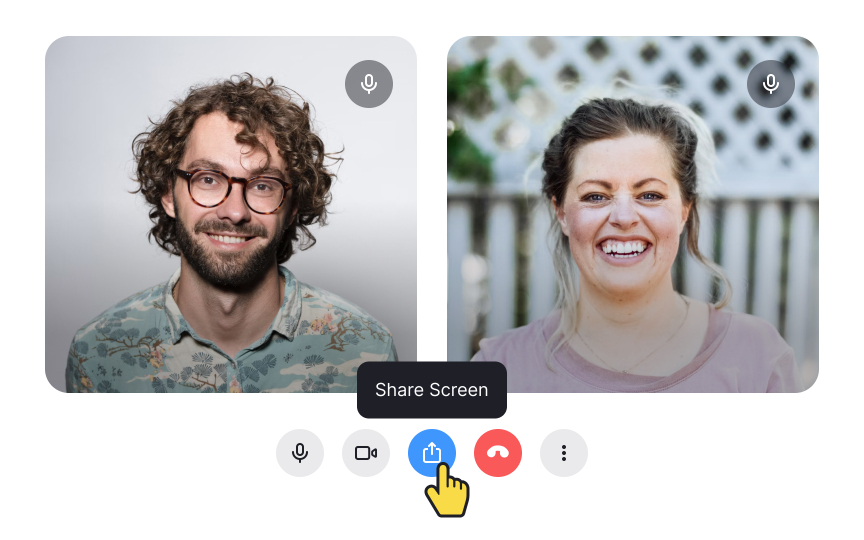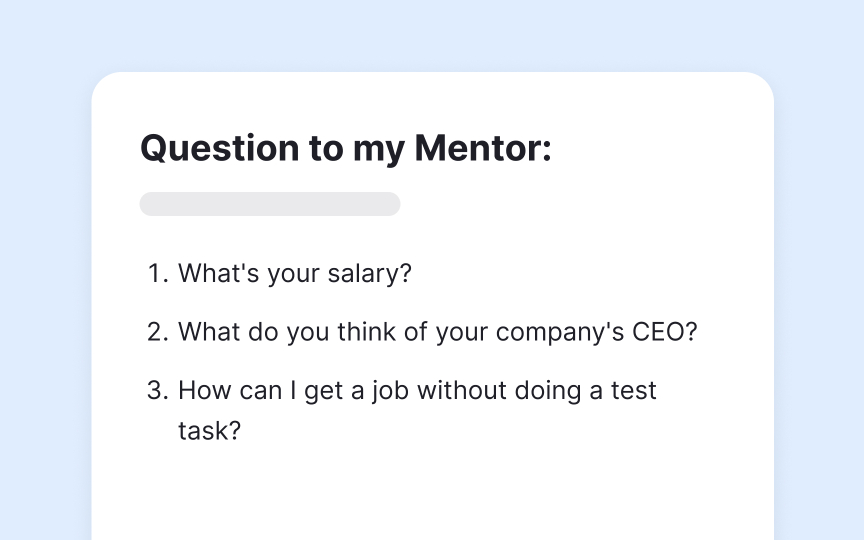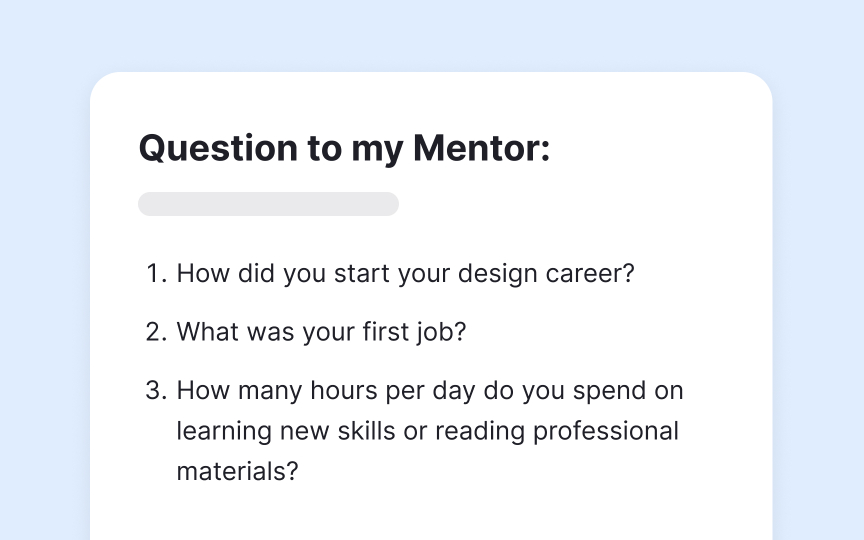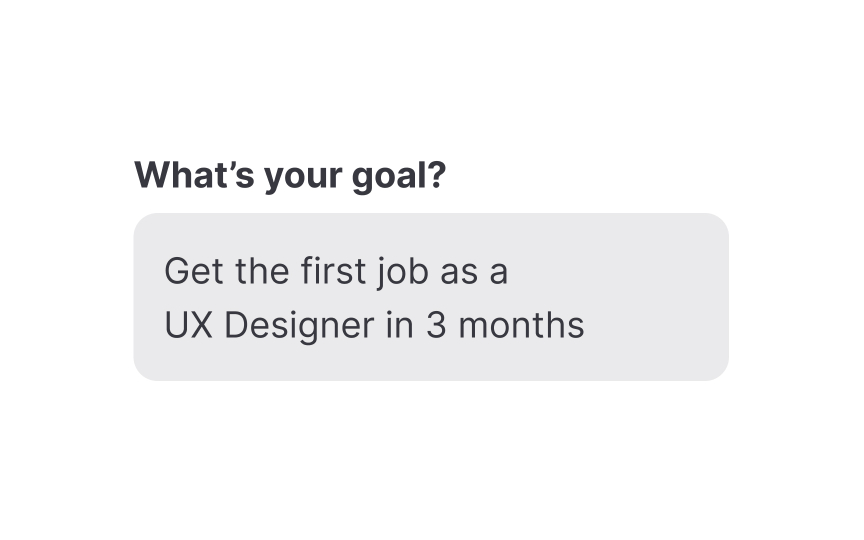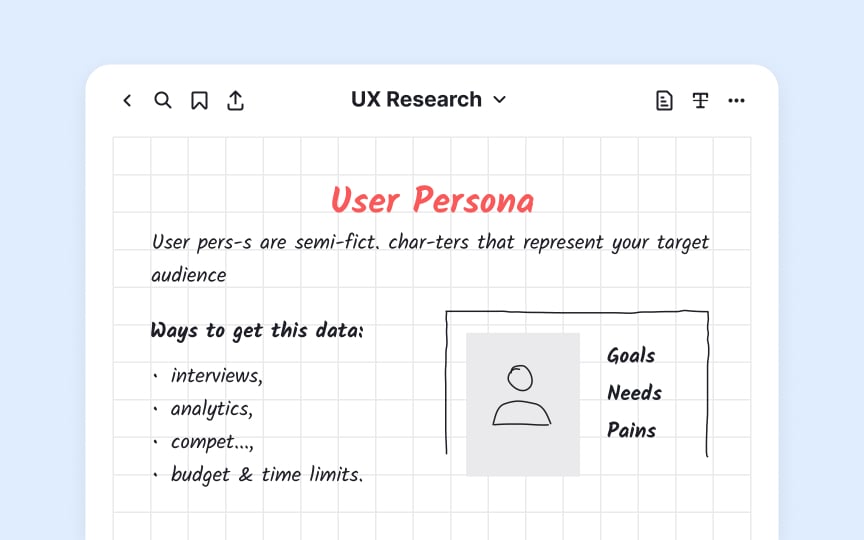Your First Session With a Mentor
Learn how to prepare for a successful and meaningful first session with your mentor as you embark on your mentorship journey
If finding a mentor is like online dating, your first mentorship session is like your first date. There will probably be some awkwardness and reluctance to begin a conversation. However, keep in mind that being prepared for your first meeting with your mentor is key to a strong, trusting relationship in the future. You can send a list of questions/ topics you would like to discuss during the first meeting to your mentor beforehand so they can get prepared. Grab a cup of coffee, turn off your phone notifications, take your notebook to jot down insights and recommendations, and focus on having an in-depth, productive conversation.
You likely have more than one topic to discuss. However, try to develop a plan or ask your mentor for assistance and stick to it. It'll help you stay on track when you dive into a discussion.
Notify your mentor of the topic you want to discuss in the first session beforehand so you both have clear expectations and are prepared. You might attach your CV or portfolio so your mentor can review it and get an understanding of your background and skills.
We are all used to having meetings online today. If you are geographically distant from your mentor, an online meeting format provides more flexibility. Face-to-face communication may seem more effective, but it requires more time and an undisturbed private space.
Emails, social media, and messengers may seem like a nice alternative to online meetings if you both have busy schedules, but this communication doesn't happen in real time. Social media and messenger tools also often don't imply enough seriousness and also have a character limit. Plus, it may make a mentee feel ignored or rejected simply because a mentor doesn't check their inbox instantly or is busy doing other tasks.
Mentors who insist on text-based communication are most likely not interested in investing in you. If you don't want to waste your time, find a professional who doesn't mind meeting online or offline at least once a week and is ready to reply to quick questions over chat.[1]
Asking relevant and appropriate questions is a skill. It's much easier to articulate your questions when you have your goals clearly laid out in mind. For example, if you're focused on getting a job or transitioning to another industry, learning about the career path of your mentor can be helpful. You may ask them about their experience searching for their first job, the obstacles they met on their path, and what they learned from it.[2]
If your goal is to learn how to use a particular software, you may ask a mentor for more practical things, for example, the most popular keyboard shortcuts or Figma techniques and tutorials.
If you have a hard time formulating questions, think of your problem and what prevents you from reaching your goals. For example, you don't like your current position and want to focus less on design aesthetics and more on user psychology. What qualities do you lack to land a UX researcher or analyst job? What skills do you need for such roles? Or maybe, you have the skills but aren't sure how to customize your portfolio and CV to this role. Think of a specific problem, and the questions will pour in.
Pro Tip: Even if you've established a rapport with your mentor and sent each other memes, it doesn't mean you can ask questions about their personal life or salary, especially during the first session. Stick to your topic and choose only relevant questions.
To save some time during your first session, you may introduce yourself to your mentor beforehand. Before the first session, send them your CV and portfolio with a few words about your objectives and pain points. Also, take some time to introduce yourself personally during the first meeting. Mention your interests, hobbies, and favorites to find common ground with your mentor and break the ice.
Here's a word of caution — mentors aren't your therapists or physicians. They aren't supposed to help you with your mental health or physical condition. You can't expect them to "fix" you, help you become more confident, or change your attitude toward your success. If you feel that you're not ready for mentoring mentally or physically,
The SMART model is the best approach for setting goals during
- Specific: Setting specific goals determines your future steps, indicates the deadline for achieving them, and explains why you need to accomplish them. "Becoming a successful
UX designer" is too ambiguous. "Introduce user research in product development" is a more specific goal. - Measurable: Discuss with your mentor the metrics of your success. For example, for the aforementioned goal, the success metric can be regular team sessions for analyzing user interview insights.
- Action-oriented: A mentor can help a mentee develop a set of actions that achieve the goal. For example, finding participants, planning an interview, and setting interview goals can be actions for reaching the goal.
- Realistic: Focus on breaking a large goal into smaller pieces to keep them achievable.
- Time-bound: Always set deadlines for your goals.
Taking notes is essential, even if you believe that you have a phenomenal memory. First, you're human, and humans have a short span of attention. You are bound to forget at least some crucial insights, words, and terms your mentor mentions during the session. Mentors may view you as unreliable and disrespectful if you ask them to repeat things too often.
Second, writing is thinking. Keeping notes can help you mark confusing areas and formulate relevant questions at the end of the session. Additionally, taking notes demonstrates that you take the meeting seriously and don't treat it as chit-chat. This doesn’t mean you have to jot down every word a mentor says. Optimize your work by writing the main ideas and using short forms ("Approp." for "appropriate") and symbols (&). You can even add links alongside your notes if you're using a digital notebook.
A follow-up message is a brick in the foundation of a solid
If you haven't gotten along with a mentor and don't see a future in this collaboration, send a thank-you note for the mentor's time. Politely notify them that you don't want to continue and explain the reason if necessary.
Pro Tip: Notify each other of your unavailability in advance if you’ll be taking a break or will have limited access to your phones or the internet.
Sometimes, despite your best efforts, a
However, if you find yourselves on completely different professional
When ending a mentorship:
- Be honest but tactful about your reasons
- Express gratitude for their time and any insights gained
- Keep the conversation professional and focused on your career goals
- Suggest a clear endpoint rather than letting the relationship fade away
Remember that ending a mentorship doesn't have to be uncomfortable — most professionals understand that mentor-mentee relationships naturally evolve over time.
Similar lessons

Share & Collaborate on Figma

Mentorship Program

